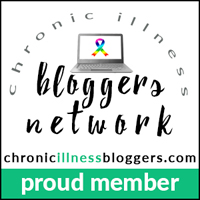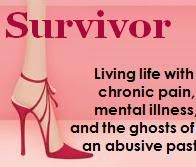Did you know that there are approximately 7,000 different types of rare diseases and disorders, with more being discovered each day?
That 30 million people in the United States are living with rare diseases which equates to 1 in 10 Americans or 10% of the U.S. population?
And that 50% of those suffering from rare diseases are children?
19 year old Cheyanne has Dysautonomia. Dysautonomia is the term of an illness that describes the “malfunction of the autonomic nervous system.” The autonomic nervous system controls all of the body’s duties that occur automatically – all of the functions that most take for granted. This includes blood pressure, heart rate, breathing patterns, digestion, vision, the bladder and kidneys, and more.
In her own words, Cheyanne tells us how Dysautonomia affects her life.
“My case is one of the less fortunate ones due to experiencing symptoms practically my entire life and continually progressing with age.
The amount of support received by friends and family is immense, initially. That is, until months of treatments, pills, and intravenous infusions turn to years. “Healthies,” as I prefer to term them, do not have time to entertain chronic illness. They have lives to live. Lives that are not conducive to Dysautonomia induced sick days and the incessant cancelling of plans. I feel that this is an issue that greatly shocks the younger Dysautonomia population once diagnosed.
Illness at a young age (does) add a unique aspect to both friendships and romantic relationships alike. It forms closer bonds knowing that relationships do require increased effort. It easily rules out who truly cares. My current partner of over three years is a prime example. Although we are now both adults, what other teenage boy wouldn’t run for the hills as their girlfriend of only a couple of months begins hysterically crying after showing up to school or a date with a feeding tube plastered to her face?
Receiving a Dysautonomia diagnosis is undoubtedly harsh news to process. It does not indicate that life is over though. It is possible to pursue a future. However, education and work are definitely areas in my life that becoming ill has interfered with since my health decline began.
In eighth grade I was given no choice but to begin a homeschooling education. As I entered high school, my schooling became more erratic. A manageable plan was concocted though. For an hour and a half daily, I would attend the high school for one class period. I was also granted permission to attend the local community college for dual enrollment after passing a test to do so. Two days of the week I would partake in a class there. The remainder of my education every semester was completed through the online college courses or through online high school. I fought to ensure that the countless appointments, sick days, surgeries, and medical interventions did not deter my dreams.
I did not have the normal high school experience. I never had the opportunity to become involved with extracurricular activities. I never, and still have not, had the chance to begin my first job. Pep rallies and high school sports games did not exist in my vocabulary. And only physically participating in one course a day does not necessarily lead to a strong social life.
Regardless, I graduated high school this last May as valedictorian and five classes short of earning my AA degree in English. I received nearly a full ride scholarship to Rollins College in Winter Park, Florida. Life was good. With proper accommodations, I was set to begin dorm life. Everyone’s hopes were that my high school situation did not foreshadow my college experience.
I never made it to Rollins. Instead, I spent what was supposedly going to be the best years of my life inpatient at the hospital after my Mast Cell Disease and Dysautonomia took a downwards spiral. As I write this, I am hooked up to J tube feeds, continuous IV fluids, multiple continuous IV medications and other IV medications scheduled every six hours. I do not get to leave all of that behind at the hospital following discharge.
My original plans may not have transpired. I may be paying more to go to a local college than I would if I were able to attend Rollins. My biggest worry may not be about the next midterm exam or which party I want to make my grand appearance to. But my life is not over because of Dysautonomia and other health conditions diagnosed. Sick or healthy, God has a plan for my life. He does for you too.”














One Response to February 29th is Rare Disease Day